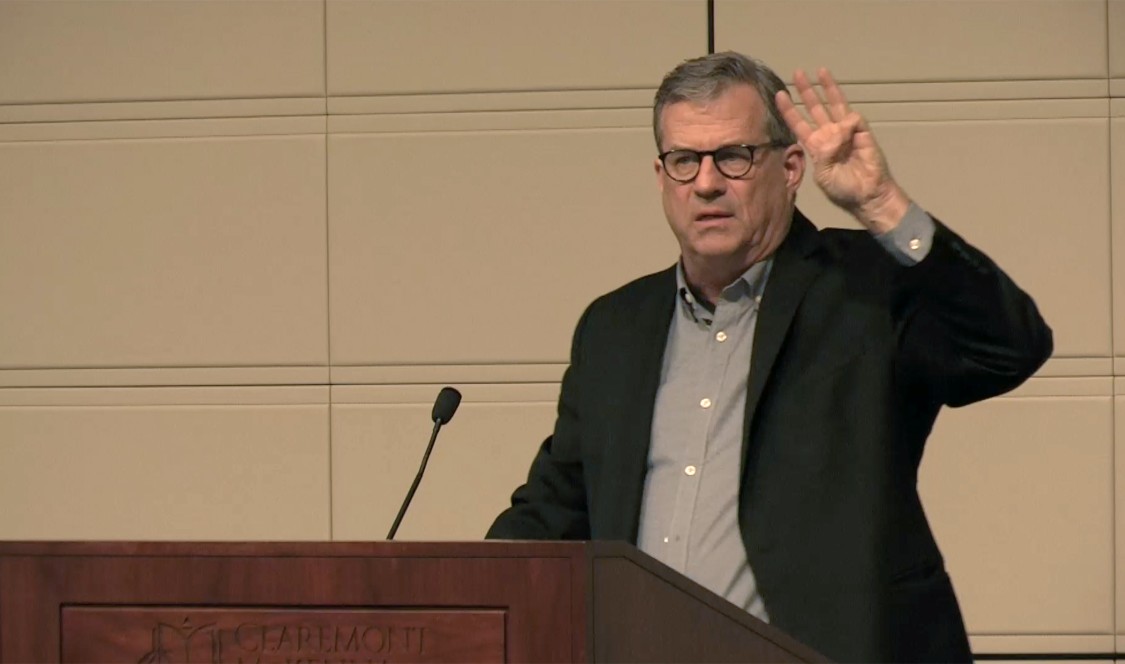Journalist and author Sam Quinones’ March 7 visit to the Atheneum was something of a homecoming––as the son of late CMC Professor Ricardo Quinones P’88, who taught comparative literature for nearly 40 years and served as the founding director of the Gould Center for Humanistic Studies, Sam Quinones knows CMC well. He shared fond memories of the College and the City of Claremont and greeted longtime friends in the audience.
The subject matter of his talk: “America and Hope in the Time of Fentanyl and Meth: One Reporter’s Stories,” however, was serious. As the author of two books on the nation’s drug crisis, he relayed that the emergence and wide availability of powerful, deadly synthetic drugs like fentanyl has led to “a very different story than the last 50 years.” He shared that “there is no such thing anymore as recreational risk-free drug use in America, which was the case when I was growing up. Now fentanyl will kill you.”
The “catastrophic” change he outlined stems from the supply of synthetic drugs now being produced cheaply and plentifully, mostly by traffickers on the western side of Mexico. “You don't need land, sunlight, or irrigation––you contract the supply chain down to a few people [when] you make it all in the lab away from the prying eyes of a helicopter,” Quinones observed.
As a result, Quinones said, “Supply creates demand and not the other way around.” Add to that, as he detailed, faltering community systems have led to decreased social engagement and isolation, exacerbating the problem.
Though expressing alarm about all he had learned from his years of reporting and writing on the burgeoning and ever-shifting drug crisis, Quinones also relayed optimism about the community-building social programs that have sprung up in response. The solution he said, lies in “increased human interaction.” He noted, too, significant advances in our “golden age of neuroscience,” particularly in the study of addiction, that will help medical professionals better understand and treat drug users.
Speaker quote:
“Perhaps our best defense––maybe our only defense–– is repairing and rebuilding and strengthening community. Community is the most powerful, more powerful than any drug because we evolved to need it. We survived … as human beings all across this earth because we understood the importance of being around others.”
Why I’m here:
Tyler Duggan ’23, an economics major: “I remember reading an article [Quinones] wrote on methamphetamine in the Los Angeles Times. It made an impact on me––I want to hear about his work.”
From the audience
Simrun Shroff ’23, a CMC economics major: “What community measures do you think might be most effective in combatting the problems you described in your talk?”
Quinones: “I think we could probably devise a lot of complex solutions but basically I think it’s really about a lot of low touch stuff like getting outside with other Americans…I think what the epidemic is calling on us to understand is that we are only as strong as the most vulnerable.”

